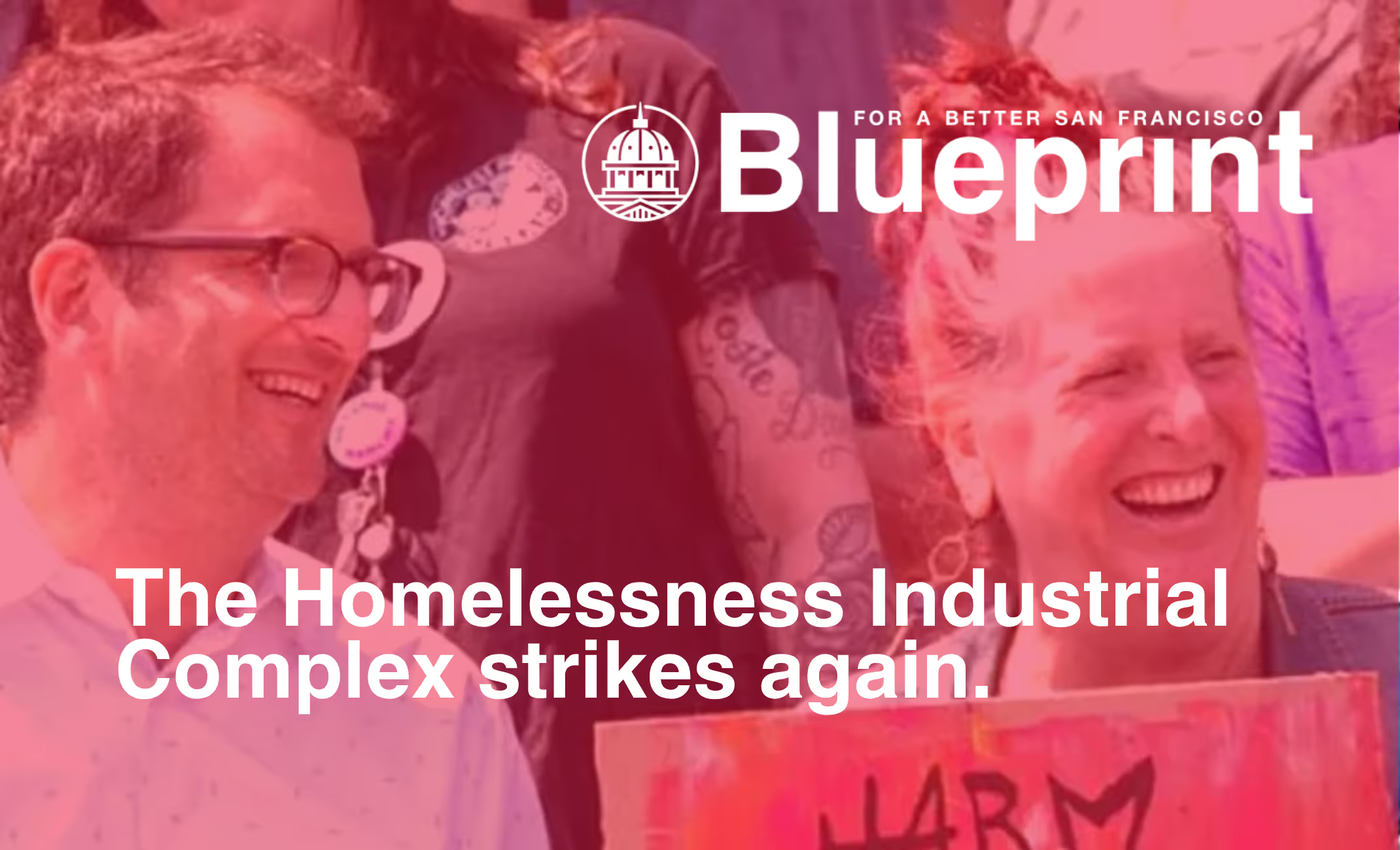
The Coalition on Homelessness has done everything but work to end street homelessness in San Francisco:
- They’ve advocated against the construction of new shelter (as they are permanent supportive housing absolutists).
- Handed tents out while the city has tried to clear them.
- Vehemently opposed the RV ban that was ultimately passed by the Board of Supervisors - the one that gives everyone living in an RV access to free housing.
In 2022, the Coalition on Homelessness sued the City to stop its encampment sweeps. Well, they just won $2,828,000 of taxpayer dollars (amidst a massive structural budget deficit) to cover the cost of their attorneys fees, pending approval by the Board of Supervisors. While this will stop them from continuing to pursue costly and frivolous claims in appellate court, it hurts to see so much go to an organization that doesn’t always seem to have the city’s interest at heart.
Their case centered on questions around whether or not the City was effectively bagging and tagging the personal property it cleared from encampments (“bagging and tagging” is where City employees collect belongings from an encampment, tag it with its’ owner, and then hold it for said person to come retrieve) as well as whether the city was allowed to conduct sweeps in the first place.
Here’s the problem with organizations like the Coalition; they know that if we actually solve street homelessness, they have no reason to exist. So they obstruct progress in the name of buzzy words like compassion and humanity. Bear in mind - this is the same organization whose leader, Jennifer Friedenbach, took center stage at a rally where people held signs with statements such as “Downtown is for Drug Users.”
While City Attorney David Chiu represents the City and more or less had to present this settlement for approval, it sheds light on the types of tactics the Coalition uses; the Coalition isn’t on the side of what’s right for the City, nor our unhoused folks. And these frivolous lawsuits are coming at the expense of everyday San Franciscans.
It’s not compassionate for the Coalition to pursue policy pathways that perpetuate inhumane living conditions for our most vulnerable residents - but it certainly does pay well.
.png)
.avif)
%20(1).avif)
.webp)
.png)